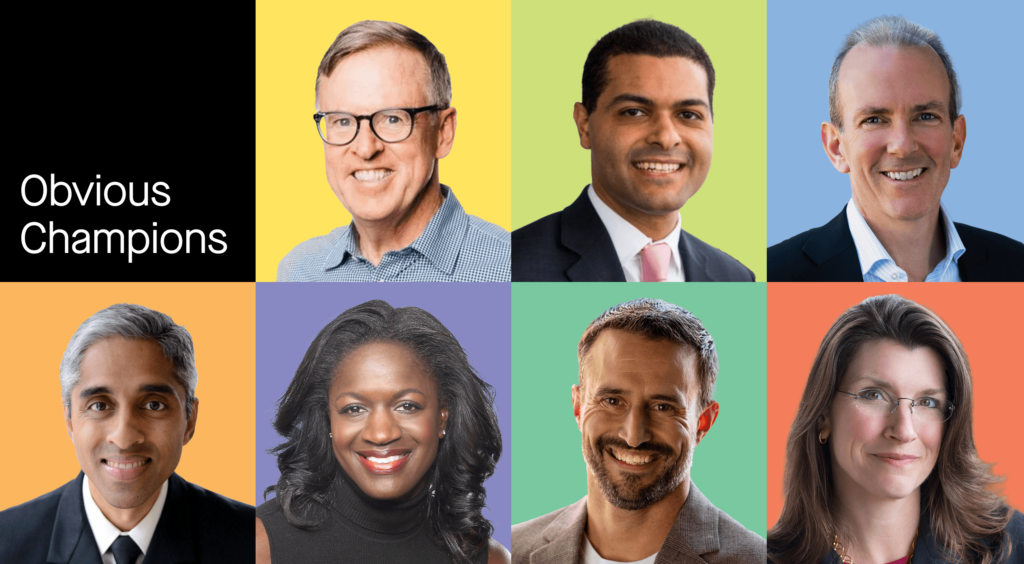Profits *Because of* Purpose
Milton Friedman would agree: give the people what they want
Andrew Beebe |

Much has been written about the lofty goal of creating profits while somehow also delivering on the goal of providing a social good. “Profits with Purpose” has become something of a romantic rallying cry for those seeking to make a difference. Yet so many great thinkers, most famously Milton Friedman, describe profits and purpose as a choice to make, not a solution to a market demand. To them, it’s an either or. At best, it’s “profits, despite purpose.” As Friedman famously wrote, “there is one and only one social responsibility of business – to use its resources and engage in activities designed to increase its profits…”
Friedman’s quote has been used for decades to suggest maximized profits cannot co-exist with purpose. But casting profits and purpose as a tradeoff is a false dichotomy. Evidence increasingly proves the concept would be better described today as “profits because of purpose.”
Every day we are seeing a world of businesses delivering consistent returns and predictable, sustainable growth because companies are listening to their customers. And those customers are asking for purpose-driven products and services. The consumers in markets as vast as food, transportation and health are expecting solutions which solve a problem by delivering products and services with purpose. The predictable economic outcomes happen as a result of the focus on purpose, not despite it — especially when operationalized clearly and with intention across the organization.
This isn’t just a feel-good spin on economic theory.
Across sectors amazing founders are creating long-term shareholder value by delivering on the purpose demanded by a dizzying array of customers. From Tesla Motors to Proterra to Lilium, great entrepreneurs are delivering on the massive demand from the market for cleaner, safer, better vehicles. These companies have a purpose in the truest sense—and if they deliver on that purpose, the profit and sustained growth that shareholders crave will follow. In the energy space, from solar panels to wind turbines to energy plant development, many billion-dollar businesses have been built. Some, like my former employer Nextera, are among the highest performing most consistently profitable businesses in their sectors. Food and nutrition companies like Beyond Meat and GoodEggs are all showing that delivering purpose is driving growth.
Beyond product businesses, many services companies also have proven that purpose is what’s driving growth. Companies as diverse as Virta, Visor and Recursion are all built on delivering services with purpose for extremely large customer bases demanding it.
In all of these cases, and many more, purpose is the driver, not an afterthought.
In simple terms, the more the company grows, the more they have delivered on the promise of purpose offered up to their customers.
Investors are also increasingly changing their tune, with growing volume and frequency. In his annual letter to CEOs, Larry Fink—CEO of BlackRock, the single largest investor in the world with $6 trillion under management—recently wrote:
“Without a sense of purpose, no company, either public or private, can achieve its full potential. It will ultimately lose the license to operate from key stakeholders. It will succumb to short-term pressures to distribute earnings, and, in the process, sacrifice investments in employee development, innovation, and capital expenditures that are necessary for long-term growth.”
We couldn’t agree more.
So, wait. What about Milton Friedman? Was he just wrong? I don’t think so. I think that reading history in single sentences, or worse, partial sentences, leads to misunderstandings.
The rest of Friedman’s oft-quoted phrase above helps articulate a more nuanced view. He said “there is one and only one social responsibility of business – to use its resources and engage in activities designed to increase its profits so long as it stays within the rules of the game, which is to say, engages in open and free competition without deception or fraud.”
Maybe I’m giving him too much credit here, but I believe he would agree companies who have engaged in decades of deception, misinformation and manipulation will ultimately fail in their mission to return consistent and optimal returns. These companies are clearly not built to last.
Not all companies driven solely by profit motives ultimately engage in deception, but many do, particularly when we consider deception broadly. Companies misleading customers regarding their impact on the environment, their workforces, or the health of their customers are too often the rule, and not the exception. None of these constituencies are their shareholders, and there is a clear misunderstanding that this is somehow a rationalization for deviant behavior.
Friedman, I’m convinced, would not approve.
It’s time to return to a clear view of enlightened and rational self-interest. It’s time to recognize that if businesses want to last for decades or centuries by delivering consistent growth, retaining the best employees, and prepare for any competitive threats, they will need to do so because of purpose, not despite it.



